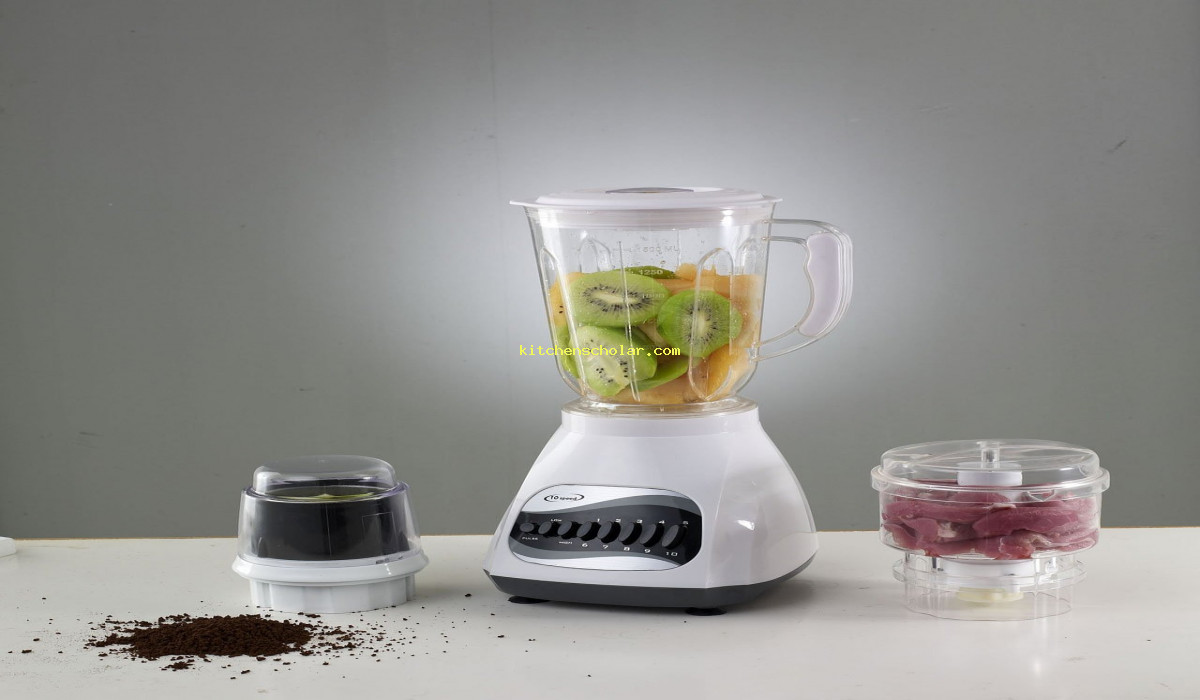10 Mouthwatering Juicer Recipes for Your Kitchen – Elevate Your Health!. Looking for the perfect kitchen juicer to upgrade your healthy lifestyle? Our top-rated juicers extract every last nutrient and delicious flavor from your fruits and vegetables with ease. From compact designs to powerful motors, our juicers are a must-have for any kitchen. Experience the convenience and health benefits of juicing today!
10 Mouthwatering Juicer Recipes for Your Kitchen – Elevate Your Health!
10 Mouthwatering Juicer Recipes for Your Kitchen – Elevate Your Health!. your fruits and 10 Mouthwatering Juicer Recipes for Your Kitchen – Elevate Your Health!
The Benefits of Kitchen Juicer
Juicing has become a popular trend in recent years, and for good reason. Not only does it offer a convenient way to get essential nutrients from fruits and vegetables, but it also promotes overall health and wellness.

While there are many juicers on the market, one that stands out for its versatility and efficiency is the kitchen juicer. In this article, we will dive into the benefits of owning a kitchen juicer and how it can improve your daily life.
What is a Kitchen Juicer?
A kitchen juicer is a powerful appliance that extracts juice from fruits and vegetables, separating the pulp from the liquid. It comes in various types, such as centrifugal, masticating, and triturating, each with its unique features and benefits. A kitchen juicer is different from a blender, which blends the whole fruit or vegetable, including its pulp and skin, into a smooth consistency.
The Benefits of Using a Kitchen Juicer
There are numerous benefits to using a kitchen juicer, and we have listed the top ones below:
1. Nutrient-Packed Juice
When you juice fruits and vegetables, you are essentially extracting their vitamins, minerals, and enzymes, which are easily absorbed by your body. Juicing allows you to consume a larger amount of produce in one sitting, providing a concentrated dose of nutrients that your body can immediately absorb and utilize.
2. Increased Energy Levels
The vitamins and minerals present in fruits and vegetables not only boost your immune system, but they also increase your energy levels. Juicing allows you to get the recommended five servings of fruits and vegetables a day conveniently, giving your body the necessary boost to tackle each day with vigor.
3. Improved Digestion
Juicing removes the insoluble fiber found in fruits and vegetables, making it easier for your body to absorb the nutrients and digest them. This can be especially beneficial for those with digestive issues or sensitive stomachs.
4. Weight Loss
Drinking juices made from low-calorie fruits and vegetables can support a healthy weight loss journey. Juicing helps you incorporate more nutritious foods into your diet and reduces cravings for unhealthy snacks or processed foods.
5. Saves Time and Money
With a kitchen juicer, you can quickly whip up a nutrient-packed juice in a matter of minutes. This is a great time-saver for those with busy schedules. Additionally, making your juices at home can be more cost-effective in the long run compared to buying pre-packaged juice.
Types of Kitchen Juicers
As mentioned earlier, there are various types of kitchen juicers, each with its unique features and benefits. Let’s take a closer look at the three main types:

1. Centrifugal Juicers
Centrifugal juicers are the most common type of juicer and are typically more affordable. They work by using sharp blades to chop up produce and then pushing the pulp through a strainer using centrifugal force. While they are fast and efficient, they are not the best at extracting juice from leafy greens and tend to produce more foam.
2. Masticating Juicers
Masticating juicers, also known as cold-press or slow juicers, extract juice from produce by crushing and pressing it. They operate at slower speeds, which helps preserve the nutrients and enzymes in the juice. Masticating juicers are known for their ability to juice leafy greens and produce a high yield of juice.
3. Triturating Juicers
Triturating juicers, also known as twin-gear or dual auger juicers, are the most expensive type of juicer. They work by crushing produce between two gears, extracting more juice and nutrients. They are great for juicing harder and fibrous produce, and they produce the least amount of foam compared to other types of juicers.
How to Choose the Right Kitchen Juicer for You
Choosing the right kitchen juicer can be overwhelming with so many options available on the market. Here are a few factors to consider when making your selection:
1. Price
The cost of a kitchen juicer can vary significantly depending on the type and features. Before purchasing, decide on a budget that works for you and then look for options within that range.
2. Cleaning and Maintenance
Some juicers are more labor-intensive when it comes to cleaning, while others have dishwasher-safe parts for easy maintenance. Consider how much time you are willing to spend on cleaning and maintenance before making your purchase.
3. Juicing Needs
Think about what types of produce you will be juicing the most and what type of juice you prefer. This will help determine which type of juicer is best suited for your juicing needs.
4. Juicing Frequency
If you plan on using your juicer daily, invest in a durable and high-quality juicer that can withstand frequent use.
Tips for Using a Kitchen Juicer
Once you have selected the right kitchen juicer for you, here are some tips to keep in mind when using it:
1. Wash Produce Before Juicing
It is important to thoroughly wash produce before juicing to remove any dirt, pesticides, or bacteria that may be present on the surface.
2. Follow the Recommended Cutting Instructions
Different types of produce require different cutting techniques to ensure efficient juicing. Be sure to follow the recommended instructions for cutting produce before juicing.
3. Experiment with Different Recipes
The beauty of juicing is that you can create endless combinations to suit your taste preferences. Don’t be afraid to experiment with different recipes and ingredients to find your favorite juice.
4. Use the Pulp
The pulp that is left behind after juicing can still contain some nutrients. Consider using it in recipes for soups, sauces, or baked goods to reduce waste and incorporate more fiber into your diet.
10 Mouthwatering Juicer Recipes for Your Kitchen – Elevate Your Health!
Looking for the perfect kitchen juicer to upgrade your healthy lifestyle? Look no further! Our top-rated juicers extract every last nutrient and delicious flavor from your fruits and vegetables with ease. From compact designs to powerful motors, our juicers are a must-have for any kitchen. Experience the convenience and health benefits of juicing today!. Juicer 10 Mouthwatering Juicer Recipes for Your Kitchen – Elevate Your Health!
Kitchen Juicers: The Ultimate Guide to Finding the Right Fit
Juicing has become an increasingly popular way to incorporate more fruits and vegetables into our diets. Not only does it allow us to consume a larger number of nutrients, but it also helps us to consume these nutrients in a more easily digestible form. And when it comes to juicing, a reliable kitchen juicer is an essential tool to have.
But with so many different types and brands of juicers on the market, it can be overwhelming to know which one to choose. That’s where we come in. In this complete guide, we’ll walk you through everything you need to know about kitchen juicers, from the different types available to the key features to consider when making your purchase.
Types of Juicers
When it comes to juicers, there are three main types: centrifugal, masticating, and triturating. Each type has its own unique benefits and drawbacks, so it’s important to understand the differences before deciding which one to invest in.
Centrifugal Juicers
Centrifugal juicers are the most common type of juicer, and they work by separating the juice from the pulp through a high-speed spinning process. These juicers are typically more affordable and have a larger feed chute, making them ideal for those who want quick and easy juicing. However, they tend to be less efficient in extracting juice and can have more foam and oxidation, which can affect the nutrient content and taste of the juice.
Masticating Juicers
Masticating juicers work by slowly grinding and crushing the fruits and vegetables, resulting in a high-quality juice with minimal foam and oxidation. They are also able to extract more juice from produce, making them a great choice for those who are serious about juicing. However, they tend to be more expensive and have a smaller feed chute, requiring more prep time.
Triturating Juicers
Triturating juicers, also known as twin gear juicers, are the most advanced type of juicer. They use two gears to extract juice, producing the highest quality juice with the least amount of oxidation and foam. They are also able to handle a wider range of produce, including harder vegetables and leafy greens. However, they come with a higher price tag and can be more challenging to clean and assemble.
Key Features to Consider
When looking for the right kitchen juicer, there are some key features that you should consider to ensure that you get the most out of your juicing experience. These include:
– Motor power: The motor power of the juicer determines its speed and efficiency. A more powerful motor can handle harder produce and reduce prep time.
– Speed settings: Different types of juicers have different speed settings, with centrifugal juicers having the highest speeds and triturating juicers having the slowest speeds. Consider your juicing needs before deciding on a speed setting.
– Pulp ejection: Some juicers have an internal pulp collector, while others have an external one. An external pulp ejection system can make cleanup easier, but it takes up more counter space.
– Juicing yields: Juicers with a higher yield will extract more juice from produce, making them more efficient and cost-effective.
– Size and weight: Consider the size and weight of the juicer, especially if you have limited counter space or plan on storing it away when not in use.
– Noise level: Centrifugal juicers tend to be louder than masticating and triturating juicers, so if noise is a concern for you, look for models with lower decibel levels.
– Warranty: Juicers can be a significant investment, so make sure to check the warranty offered by the manufacturer to ensure your juicer is protected in case of any defects.
Maintaining Your Juicer
Proper maintenance is crucial to getting the most out of your juicer and prolonging its lifespan. Make sure to read and follow the manufacturer’s instructions for cleaning your juicer after each use. It’s also recommended to clean it immediately after use to prevent any ingredients from drying and becoming harder to remove.
Here are some general tips for maintaining your juicer:
- – Disassemble the parts and rinse them with water after each use.
- – Use a brush to remove any pulp or residue from the filter.
- – Soak any stubborn parts in warm water and a mild soap.
- – Avoid using harsh chemicals or abrasive sponges that can damage the juicer.
- – Let all parts dry completely before reassembling.
Final Thoughts
A kitchen juicer is a fantastic tool to have for those looking to increase their fruit and vegetable intake. When choosing your juicer, carefully consider the type, features, and maintenance requirements to ensure that you find the best fit for your needs.
Remember to thoroughly research and compare different models before making your purchase, and don’t be afraid to invest in a higher quality juicer that will serve you well in the long run. With the right juicer by your side, you’ll be able to create delicious and nutritious juices to boost your health and well-being. Happy juicing! 10 Mouthwatering Juicer Recipes for Your Kitchen – Elevate Your Health!

10 Mouthwatering Juicer Recipes for Your Kitchen – Elevate Your Health!
How do you choose a kitchen juicer?
Answer: When choosing a kitchen juicer, consider factors such as the type of produce you will be juicing, the speed of the juicer, and the type of juicing mechanism (centrifugal or masticating).
What is the difference between a centrifugal juicer and a masticating juicer?
Answer: A centrifugal juicer uses blades to shred and extract juice from produce, while a masticating juicer crushes and squeezes produce to extract juice. Centrifugal juicers tend to be faster but may not juice leafy greens effectively, whereas masticating juicers can juice a wider variety of produce but are typically slower.
Can you juice leafy greens using a kitchen juicer?
Answer: Yes, if you plan on juicing a lot of leafy greens, it is recommended to use a masticating juicer. The slower juicing process of a masticating juicer is better for extracting juice from leafy greens compared to a centrifugal juicer.
What is the best type of kitchen juicer for juicing hard fruits and vegetables?
Answer: A centrifugal juicer with a powerful motor and sharp blades is recommended for juicing harder produce such as carrots and apples. This type of juicer will be able to efficiently extract juice from these types of produce.
How much should I spend on a kitchen juicer?
Answer: The price of kitchen juicers can vary greatly, from under $100 to over $500. Consider how often you will be using the juicer and the type of produce you plan on juicing to determine a budget that works for you.
What is the best way to clean a kitchen juicer?
Answer: It is important to clean your kitchen juicer thoroughly after each use to prevent buildup and maintain its performance. Most juicers come with specific cleaning instructions, but in general, disassemble the juicer and hand wash with warm soapy water. Some parts may be dishwasher safe, but be sure to check the manufacturer’s instructions.
Can I make nut milk using a kitchen juicer?
Answer: While it is technically possible to make nut milk using a kitchen juicer, it is not recommended. Most juicers are not designed for this purpose and may not effectively extract milk from nuts. It is best to use a blender or nut milk bag for this task.
What is the benefit of using a kitchen juicer compared to store-bought juice?
Answer: By making your own juice at home, you have control over the quality and freshness of the produce being used. Store-bought juices may contain added sugars and preservatives, whereas homemade juice can provide more nutrients and antioxidants.
Can you juice citrus fruits using a kitchen juicer?
Answer: Yes, most kitchen juicers can effectively juice citrus fruits such as oranges, lemons, and grapefruits. Look for a juicer with a citrus attachment specifically designed for juicing these types of fruits.
What other uses does a kitchen juicer have besides making juice?
Answer: Some kitchen juicers can also be used to make nut butter, sorbet, and baby food. Check the manufacturer’s instructions for specific capabilities, as some juicers may come with additional attachments for these tasks. 10 Mouthwatering Juicer Recipes for Your Kitchen – Elevate Your Health!
